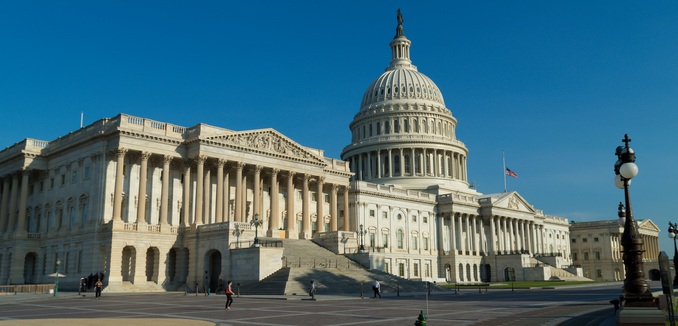Eighty-eight Democratic and Republican senators signed a letter on Monday urging President Barack Obama to veto any one-sided, anti-Israel resolutions offered by the United Nations Security Council, which would make it more difficult for Israelis and Palestinians to reach a two-state solution.
The letter, led by Sens. Mike Rounds (R – S.D.) and Kirsten Gillibrand (D – N.Y.), affirmed that “The only way to resolve the conflicts between the two is through direct negotiations that lead to a sustainable two-state solution … This outcome would provide Israel with greater security and strengthen regional stability. Even well-intentioned initiatives at the United Nations risk locking the parties into positions that will make it more difficult to return to the negotiating table and make the compromises necessary for peace.”
This view has previously been expressed by members of the Obama administration, including the president himself.
The letter cited Susan Rice, Obama’s first ambassador to the UN, who said while vetoing a 2011 Security Council resolution: “It is the Israelis’ and Palestinians’ conflict, and even the best-intentioned outsiders cannot resolve it for them. Therefore every potential action must be measured against one overriding standard: will it move the parties closer to negotiations and an agreement? Unfortunately, this draft resolution risks hardening the positions of both sides.”
Similarly, in his 2011 speech to the UN General Assembly, Obama said: “Peace will not come through statements and resolutions at the United Nations – if it were that easy, it would have been accomplished by now. Ultimately, it is the Israelis and the Palestinians who must live side by side. Ultimately, it is the Israelis and the Palestinians – not us –- who must reach agreement on the issues that divide them …. Ultimately, peace depends upon compromise among people who must live together long after our speeches are over, long after our votes have been tallied.”
The senators strongly concurred with these statements and urged the president to “continue longstanding U.S. policy and make it clear that you will veto any one-sided UNSC resolution” that may be introduced in the coming months. Such resolutions, “whether focused on settlements or other final status issues, will ultimately make it more difficult for Israelis and Palestinians to resolve the conflict,” the letter concluded.
In April, 394 congresspeople — over 90% of the members of the House of Representatives — signed a similar letter calling on the president to veto any UN resolution that sought to impose a solution on Israel and the Palestinian Authority.
Two years ago, the Obama administration informed the Palestinians that it would veto a resolution to impose a timeline for the withdrawal of Israeli forces from the West Bank.
Legal scholar Eugene Kontorovich observed last week that UN bodies use loaded terms such as “occupation” and “settlements” disproportionately when referring to territories under Israeli control, as opposed to territories occupied by other countries. For example, territories captured by Israel in 1967 have been referred to as “occupied” 2,342 times in General Assembly resolutions, while that terminology was used only 16 times to describe occupations involving other nations. Moreover, Israeli communities established beyond the 1949 armistice agreement lines are referred to as “settlements” by both the General Assembly and Security Council 273 times, even though this term has never been used to describe similar communities in other territorial disputes listed by Kontorovich.
Given this, Kontorovich warned that the UN’s systemic bias against Israel makes it a poor forum for Obama or any other Western leader to attempt to resolve the Israeli-Palestinian conflict, as “the leaders of the free world cannot afford to tempt the U.N. into indulging its obsessions.”
In June, the Associated Press reported that UN bodies are routinely and disproportionately targeting Israel while ignoring most other countries. The AP noted that, among other peculiarities, Israel is the only nation in the world subject to a permanent agenda item at the UN Human Rights Council, which forces it to review “the human rights implications of Israel’s occupation of Palestinian territory” during every session.
The AP explained that one of the driving forces behind the UN’s singular focus on Israel is the influential Organization for Islamic Cooperation, which often spearheads the push for anti-Israel resolutions. Rich nations like Saudi Arabia are also able to use their resources to influence the UN, as “The more economic and political heft that a country has, the more it can block intense scrutiny,” the AP wrote.
[Photo: Gareth Milner / Flickr ]




